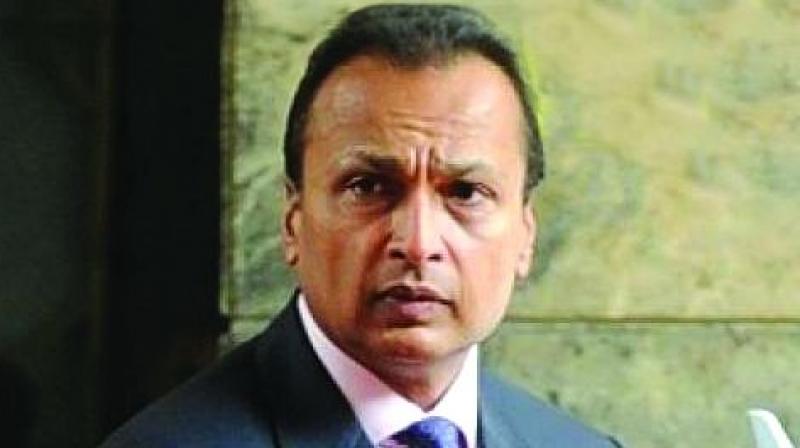Anil Ambani needs $2 billion in asset sales to save his last bastion

Mumbai: The last stronghold in embattled tycoon Anil Ambani’s phone carrier-to-power empire is also developing fault lines.
Reliance Capital Ltd., his financial services business that almost doubled its profit in five years, had largely remained insulated from the distress plaguing the wider conglomerate. Now, the company that controls India’s fifth-biggest mutual fund, is racing to close a planned $2 billion of asset sales to bolster its finances after cash dwindled to Rs 11 crore ($1.6 million) as of March, according to CARE Ratings.
With $252 million of debt falling due over May and June, a unit of Moody’s Investors Service and two other local firms have slashed ratings of Reliance Capital or its short-term instruments, citing holdups in asset sales, deteriorating liquidity and risks on loans to unprofitable affiliates.
The downgrades came against the backdrop of soaring finance costs for an industry shaken by last year’s meltdown at IL&FS.
Asset disposals are key to averting a crisis at Reliance Capital, said Mathew Antony, a Managing Partner at Mumbai-based Aditya Consulting, a credit advisory firm. “Unless some strategic infusion of long-term equity comes into the company, the day when Reliance Capital falls into a liquidity crisis isn’t too far,” he said.
“We don’t foresee any issues in meeting short term or long term funding obligations,” Amit Bapna, Reliance Capital’s Chief Financial Officer said in Mumbai on Friday. The financier expects to raise as much as Rs 12,000 crore in the next four months, Bapna said, which will reduce up to 70 per cent of its outstanding debt.
The company told exchanges on April 27 that it has short-term debt of Rs 950 crore, which will get fully repaid by end-September using proceeds from the sale of its stake in the asset management business. The 43 per cent stake was valued at Rs 5,300 crore, it said.
Of the Rs 14,000 crore of planned divestment, almost all the transactions are behind schedule, CARE Ratings said in an April 18 statement while slashing Reliance Capital’s long-term rating to A from A+ and putting it on a “credit watch.’’
Brickwork Ratings pared it to A+ from AA last month while ICRA, Moody’s local unit, had downgraded the short-term ratings in March, saying the “timeliness of receipt of funds” from divestment “remains critical.” More cuts have followed for other group companies as well.
The conglomerate has struggled to sell assets in other firms. While Ambani managed to dispose of the Mumbai power distribution and road assets, many others, especially in telecommunications were scuttled due to regulatory hurdles or legal delays.
The strain at Reliance Capital heightens the challenges facing Ambani, 59, who’s seen his indebted telecom operator Reliance Communications Ltd collapse into insolvency. His ventures in power, defence and infrastructure too have battled piling debt, bankruptcy cases and regulatory snags.
Reliance Capital has invested and lent a total Rs 13,748 crore to other Anil Ambani group companies. Its consolidated net worth tumbled to Rs 8,140 crore by Dec. 31, less than half the level at the end of March 2018.
The financier had achieved only about a third of the total deals that were originally scheduled to wrap up by September 2018, and three-quarters of controlling shareholder’s stake is pledged.
Reliance Mutual Fund wrote down about $233 million of investments in Reliance Home Finance Ltd and Reliance Commercial Finance Ltd last month, although it said investors’ interests will be protected.
Asset sales “in a time bound manner” are essential for Reliance Capital to tide over its difficulties, according to Kranthi Bathini, an analyst at WealthMills Securities.
Shares of Reliance Capital have plummeted 40 per cent this year.
“When all group companies are constrained by liquidity problems, the strongest company will get impacted as a natural fallout,” said Hemindra Hazari, an independent analyst who writes for the Smartkarma platform

